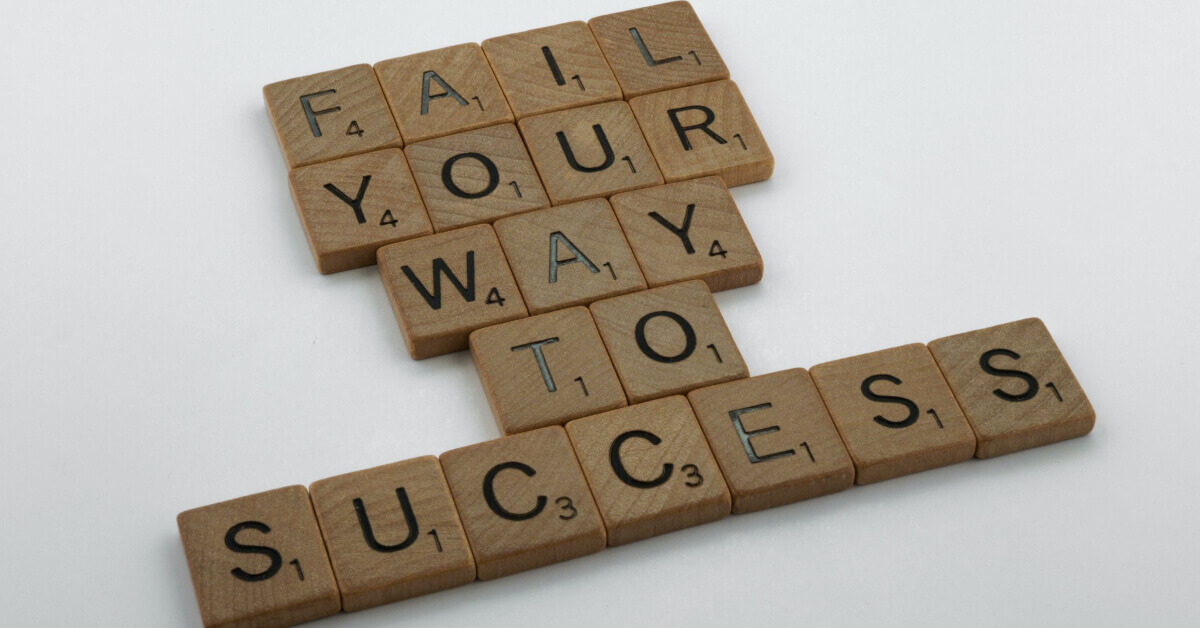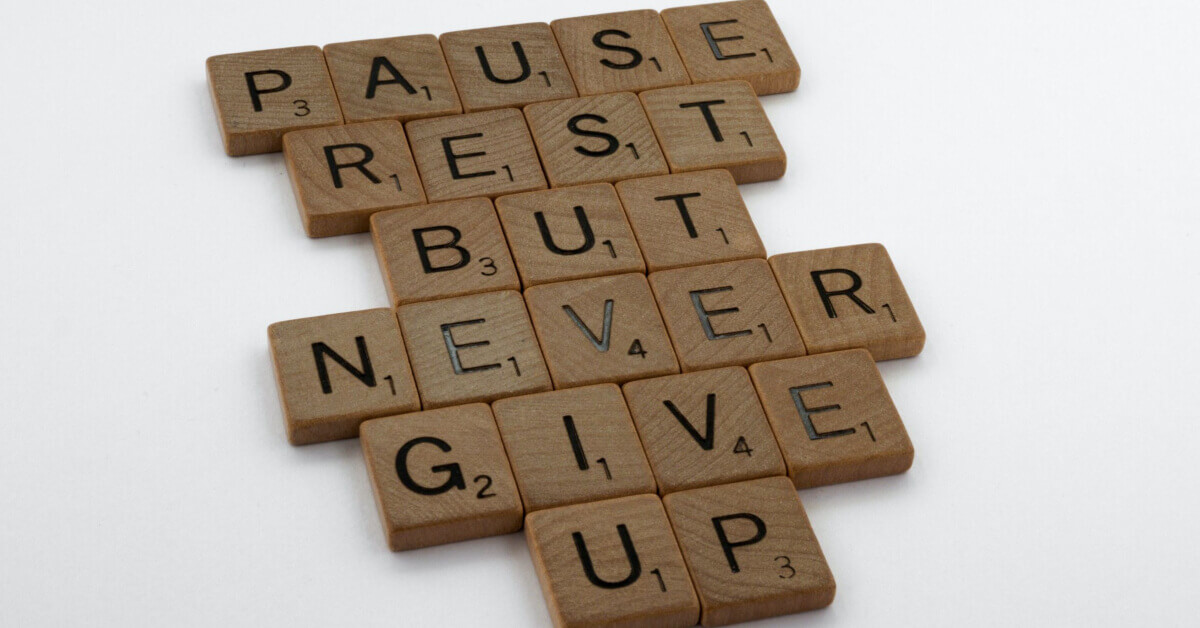Mindset
Using Time Blocking To Stay Motivated

We are all guilty of suffering from a lack of motivation in our lives!
What happens when we push our brain to keep thinking, focusing and creating hour after hour? It shuts down. It goes on strike. It says “I’m outa here, buddy”.
This is especially true when we keep requiring it to focus on the same task for hours at a time.
Neuroscience now tells us that changing tasks regularly, taking consistent breaks and blocking out our time keeps our brain more engaged when it is working so that we actually get more done in less time.
So, let’s look at blocking time.
This is not a new concept. But it’s one we don’t use often enough to maintain our enthusiasm and focus, not to mention our mental and emotional health.
But why you may ask, is this important to performance and productivity?
- Keeps your brain from getting bored (aka, low motivation)
- Mentally prepares you for the tasks ahead
- Lowers stress because you see work getting done
- Ensures no multitasking occurs
- Improves self-confidence in your ability to succeed
So, how should you go about blocking your time? Usually, it’s recommended to work in 2–3-hour work chunks at a time, while allowing a short 5–10-minute break every 30-45 minutes.
- Decide how you will block your time. There are many ways to do this, including various apps and email calendars. Google Calendar is a great way to get started because it’s easy to use and readily available.
- Chose the date and time for your task. Remember to keep it to 2-3 hrs if possible
- Decide where you will complete the task.
- Include any details you need to remember before performing the task in the memo area. This will make it faster to get started when you get to that time block. No searching for the sticky note you wrote the directions on.
- Set reminders so you know when it’s time to switch tasks. You can get a reminder via email, pop-up or app notifications.
If 2-3 hours seems a long time to focus on a particular task, then you can use smaller chunks.
The Pomodoro technique uses time chunks of only 25 minutes, each followed by a 5-minute break. After 4 of these chunks, you should take a 15-minute break.
If you a little more information about the Pomodoro technique, you can read this blog post
When working on tasks, you should also schedule breaks you’re your routine.
Why, you ask? Well, let’s look at a scientific reason now…
3 Reasons Science Tells Us To Take Breaks

Too busy to take a break? That’s a common thought in our fast-paced world.
We are a society with consistently too many things on our collective plate.
Advances in neuroscience have proven that we need breaks as well as focused work time, as some cultures have known and practiced for millennia.
Why We Need To Take Breaks

There are a number of reasons why it is important to take scheduled breaks, and we will cover just 3 of them in this article.
This causes us to become frustrated and becomes a negative feedback loop, so it is important to take a break.
Let’s look at 3 big reasons to stop…
Make Connections And Retain Information

Our brain has two modes of operation. The focus mode, which is where we spend most of our day, concentrating on tasks and challenges as they arise.
For example, you may have an ah-ha moment about a solution to a problem that you’ve been trying to solve while you are driving someplace familiar or taking a shower. This diffuse mode is when most of our insights and out-of-the-box thinking happens.
Re-Evaluate Our Goals

When we stay focused on a task or problem constantly, we can easily become caught up in all the little details instead of questioning if we are completing the right tasks in the best order and way.
Stepping out of work mode for even just a few minutes is enough time to help us re-evaluate our goals and the way we are going about achieving them.
Keep Us Engaged And Motivated

Our brains weren’t meant to stay in focused mode all the time, even though we think they should sometimes.
Breaks give our brains a rest from constant focus so that they can “regroup” if you will. When we take breaks throughout the day when working on tasks that take a lot of concentration or take a longer period of time to complete, we actually are more productive and motivated when we are working on the task than if we worked straight through.
As you probably already know, having a strong mindset is critical to any attempt to plan and stay focused, so click on the featured resource below to get a free report on how to develop a strong mindset. Download, it read and take action 😊

9 Truths You Must Embrace To Be Successful

It’s a no-brainer. Everyone wants to be successful, right? And in theory, everyone can be successful. But you may have noticed that most people give up way before they achieve their goal.
Or they’re happy with some short-term success, early on in their careers. They choose to stay in comfortable stagnation and think that success is only for highflyers.
Here are nine hard truths you must embrace to succeed.
Success Is Different For Everyone

Not everyone perceives success in the same way. For many of us, and the way society paints it, success is about making money, having power and influence. It’s about being asset-rich with a big house, a big car, and expensive possessions.
What sort of life do you want? Lots of travel, or the big house ideal? Or do you want to alleviate poverty or discover new health treatments? Are study and research your passion? Or do you want to balance your life and family commitments?
Maybe being home in time for family dinners and keeping your weekends free is your priority.
Take the time to work out really what success means for you. You will be much more motivated to achieve it and much happier when you get there! Whatever success means for you, focus on that.
Be Prepared For The Cost

Whatever your success goal is, you must be prepared to give up some comfort to get there. Because whenever you make a choice, you are also choosing to give something up or to miss out on something.
If you want to focus one hundred percent on being a CEO in five years times, you are choosing to spend all your energy and time on achieving that goal. There won’t be much time left over for friends or family.
There won’t be time for a lazy weekend or vacations. That’s the cost.
If you choose to prioritize family time, you are giving up the opportunity for fast-tracking your career.
Whatever your decision you must be prepared to be flexible, to learn and adapt to changing circumstances. You must be ready to grow and to sit with discomfort.
Prepare For Some Pain

Being successful may not be a comfortable road. In fact, comfort is the enemy of success. If you’re comfortable, your energy goes down. You’re not going to take chances, and you’re not going to explore.
If you want to stay in the same position, if you choose safety, then that’s your choice – but accept that this will not lead to a successful life.
Growing and learning and being prepared to start again, acknowledging that you don’t know everything – these can be painful concepts to accept. And that is why most people choose not to learn and grow.
But the road to success requires you to be humble. It requires you to accept that you still have so much to learn. To be truly successful you need to be constantly changing, constantly becoming a better version of yourself.
Prepare To Fail

Fear of failure is what prevents many people from succeeding. They think that failure is final and conclusive and ends up defining you as a person. The most successful people allow themselves to fail.
But regardless of how you came to fail there is only one way out that leads to success.
You assess, and you learn, and you don’t make that mistake again. You don’t beat yourself up. You see that failure as a stepping stone to your future success.
Don’t Confuse Willpower With Commitment

People tend to mistake willpower for commitment. Just wanting something to happen will not make it so. That’s why most New Year’s resolutions don’t work.
If willpower is teeth-gritting, ‘in spite of’ negative energy, commitment is a different kettle of fish. Commitment is positive. It assumes that your goal is achievable and getting there will happen. It is a considered approach to achieving goals.
Commitment focuses your energy, your mind and your passion on achieving something that is truly important to you. If you’re committed to your goal, you will plan and work and adapt to get there.
Show Up

Persistence and consistency will beat innate talent every time. To achieve anything, you have to show up and keep showing up day after day, week after week, month after month.
But by breaking your big goal into smaller steps, you’ll slowly build up one small win after another.
Before you know it, you will accomplish what you set out to achieve.
Plan For Success

Key to this is accepting that you need to treat your goal of lasting success as a marathon, not a sprint. Short bursts of activity will leave you depleted and discouraged and more than likely you’ll give up.
Success is a lifetime project. If you truly want to be successful, treat it like any other big project.
The other advantage of mapping your success is that you consciously take control of your destiny. Planning for success means you don’t think of success as a mysterious innate talent or a piece of luck. It is something you can decide to have and work hard to achieve.
Discard The First Draft

Successful people know that they won’t achieve their goal immediately. Or even anytime soon. They know that whether your goal is to write a book, discover the cure for cancer, or win an Olympic medal, your first efforts will suck.
And there will be lots of versions before you get one that you’re happy with and finally use.
Take heart from Edison, who famously tried more than a thousand times to invent the light bulb that worked. In his view he merely got thousands of poor alternatives out of the way, so he could invent the one that did work.
Don’t give up at the first obstacle. If your first version sucks, be glad you’ve got that out of the way, so that you can get closer to the right one.
Learn To Say No

If you’re focused on achieving success, you’ll have to learn to say no. And not just say no to things you don’t want to do. You’ll have to turn down some really attractive offers, things that sound like fun, even opportunities that sound great.
Because if they don’t align with your goal, they are just distractions. Saying yes to too many things scatters your energy. Obligations that you feel you can’t refuse are also distractions.
If an opportunity for a vacation with friends comes up and that clashes with a work priority, you’ll have to choose between pleasure and achieving success.
Being aware of the opportunity cost will help you to say yes to the great opportunities that align with your goal, and you will be successful.
Mastering success above all means being aware of what you’re choosing and why. Consciously working out your version of success and working towards it will help you to have a happier, more meaningful life. It means choosing growth and learning and adapting.
Above all, it means choosing a path that may not be easy but leads to your success.
And having a strong mindset is critical to any attempt to staying focused and motivated to achieve success, so click on the featured resource below to get a free report on how to develop a strong mindset. Download, it read and take action 🙂

How To Be More Efficient

You hear all the time that you or your company needs to be more efficient. But do you know how to accomplish that?
And with more people working at home, efficiency and productivity are the name of the game at the moment.
Efficiency seems like a word that is thrown at as the end-all be-all answer to problems within an organization.
However, without a proper plan, the likely result will be confusion and chaos, and this could potentially have the opposite effect! So, you need to plan out how you and/or your employees can become more efficient
The following ‘efficiency hacks’ can help you when you are given the initiative to be more efficient.
Learning

Always be on the lookout for how to improve your job or your teams’ jobs.
This often requires learning new skills. The more you learn, the easier it will be to find alternative methods that work better.
Anyone who wants to be successful in life should be constantly learning.
Organization

If your office environment is cluttered and there is no sense of organization, it can impact the productivity of the entire group.
This can include such aspects as desk clutter, filing, and even ergonomic issues and proper placement of fixtures or furniture.
Automation

When you find ways to automate, this frees up your staff to work on more important tasks.
Mundane tasks that eat away the time of your staff are the best candidates for automation. It is possible to go overboard with automation which can cause slowdowns when the automation processes fail.
Try to determine the best tasks to automate without overdoing it.
Delegate

If you are micromanaging the work of your team, you won’t have time to handle your own tasks.
But you should guide them rather than simply doing everything for them.
Outsource

With corporate cutbacks, delegating may not be easy to accomplish.
The benefits of outsourcing are that it does not increase the company’s headcount. And as a solopreneur, you can outsource content and product creation and then you can concentrate on the marketing.
If you want to know more about outsourcing, you can download a really useful free report here.
Time Management

If you and your team are not managing your time efficiently, you are going to find it hard to move the company forward.
The likely result will be high turnover at times when team members are needed the most.
If you are working from home, especially if you are an entrepreneur, you can employ the Pomodoro technique. If you want to know about this, check out this post here.
Time Management And Efficiency Go Hand-In-Hand

If you want to know the best time management system available, the answer is, choose one. This may seem like a cop-out to you. But it’s like a gym membership. What is the most expensive gym membership available? The one you never use.
The key is to find one. That is going to be one of the main components of increasing your efficiency. If you read about a particular system, implement it for a couple of months and see how it goes.
But and this is crucial, keep going. The worst time management system is not having one. You will be spinning your wheels if you go this route.
Time management is going to take discipline and habit, especially if you haven’t been doing it. You need to get started, and you continue using it. If you are one that believes habits form in 28 days, then use your system for 28 days.
Just make sure you have something in place that allows you to evaluate that system. Hopefully, you will be experiencing higher productivity during that period.
Once your time management system is habitual and useful, there will be no stopping your progress.
When you discover a time management system that works for you, become an advocate. You can help others and, in the process, help yourself. If you and your team are operating more efficiently through the use of proper time management, your company becomes a bit more efficient as a result.
Who knows, your team may become the model for the company. Stranger things have happened.
One outcome that is highly likely is your team will get recognition. You will get your tasks done faster and will be able to take on more than you were able to before.
Want to learn more about increasing efficiency and productivity? Then check out the featured resource below to grab a free report; download, read it and take action 😊

Are You Overwhelmed And Lacking Focus?

If you’re a creative type, then you’ve likely encountered a situation where you have a ton of ideas and you keep thinking up new ones, only to eventually get overwhelmed by the sheer volume of them to the degree that you never put any of them into practice. A lack of focus can be a creativity killer!
This isn’t uncommon at all. Many people who let their creativity run unchecked can get overwhelmed when it’s time to sit down and focus. One of the solutions you can try is only allowing yourself a certain amount of time to just be wholly creative.
This allows you to actually make some progress and have something that’s tangible, instead of just having a collection of ideas. Ideas are certainly valuable, but if they’re never implemented and brought to fruition, they become worthless.
Even if the idea you choose doesn’t end up working out, at least you’re getting some practical application out of it, so that you’re not spending all your time just being creative.
The human mind often gets dazed and confused when being presented with too many options. It’s like when you can’t decide what you want at a restaurant, when you’re looking at a really long menu with so many choices.
You can easily evaluate and pick among ten or so items, but when you’re dealing with 30 or 40, you’ll start to quickly lose focus and not be able to make a good choice. It’s important that whatever idea you select to work on, it should be seen through to completion if possible.
If you just work on it a little bit and leave it unfinished, then it’s no better than never starting to begin with. The whole point of focusing on one of your ideas is to actually have something to show for it in the end.
If you have a half-completed project to show, then you really don’t have much at all. Don’t worry that doing this will stifle your creativity.
The thing is that you need to stay focused on whatever it is you are trying to achieve and if you don’t, you’ll simply become frustrated.
Apart from overwhelm, having a poor attention will also affect the way you focus and how productive and creative you are so you definitely need to work on your attention span and that can be a major undertaking in todays modern world where everything is vying for your time and attention!
However, sometimes a poor attention span may actually become a benefit so is not always negative.
Intrigued? Let’s look a little deeper…
A Poor Attention Span Can Be A Benefit!

Like I said in the previous couple of paragraphs, if you have a short attention span, you’ve probably always considered it to be one of your drawbacks. It makes it difficult for you to focus and it makes working long shifts at work a real pain.
However, it does have its benefits, though they’re mostly going to help you in the long run, not in the short term. A short attention span can help you come up with greater creative ideas over time, allowing you to return to them when you have the time to dedicate to it.
In those times, a short attention span can be detrimental, because it disrupts your focus while you’re trying to actually create something that embodies the ideas you’ve come up with previously.
The workaround here is to have a system set up for quickly logging your ideas that pop into your mind so that you can return to them later, and spend time focusing on the task at hand in the present.
You could use something as simple as a little notepad with a pen. Anytime you’re working and get pulled off track by an idea, quickly jot it down and you can return to it later when you have time.
It’s beneficial to have all of these little ideas stored away, because at some point you might try to brainstorm something to work on, and you might not have anything coming to mind. Then, you can reference your notebook and use one of those little sparks of imagination to fuel a whole new project that you might’ve otherwise forgotten.
By keeping tabs on your overactive imagination like this, you retain all of those smaller sparks of creativity that can blossom into wonderful, big projects – while still working diligently to bring existing ideas to fruition.
Having any kind of focus requires a lot of self-discipline and even if you adopt the jotting technique above you will need to be disciplined to go back and do something with the ideas.
If you want to learn more about how to develop self-discipline, click on the featured resource below for a free report; download, read it and take action 😊

Overcome Obstacles By Removing Self-Doubt

Obstacles are something that everyone who has ever lived had had to deal with, so it would be a good idea to learn how to handle obstacles, wouldn’t you agree?
Sadly, many people doubt themselves and their abilities. When it becomes a chronic situation, it can hold people back from getting what they want.

However, confidence will break through the barriers caused by obstacles.
First of all, you need to recognize when an obstacle is holding you back. Sometimes, people make excuses for their situations and pretend that they don’t exist ad this is understandable.
For instance, you could be faced with a family member who has a substance abuse problem. It’s difficult to approach the person and people ignore that a problem exists. They just keep pretending as if the person does not have a problem with the hope that the situation will resolve itself.
The problem is that sticking your head in the sand and ignoring the issue won’t resolve anything, and the person who is suffering may be crying out for help and is actually looking for someone who has the courage to stand up to their addiction.
But, if they know you care and you keep at it to confront the situation, they do hear it deep down, especially if they really are looking to get help.
You do have to be aware that if they don’t really want help, your efforts will not amount to much, unfortunately.

Self-doubt can also cripple you when others don’t have confidence in you.
For instance, if your manager has reasons to doubt your abilities, he is constantly going to be harping on at you about your work. This may cause you to doubt yourself and the situation will continue in a nasty loop.
In such cases, you need to find out why he feels this way and try to work with him to help figure out what you can do to alleviate the situation. Just having this meeting can show your manager you have confidence which could be the catalyst to turn around the situation.
But, once you gain the confidence, you will find there is no stopping you. Dealing with most obstacles will become easier for you which will lead to you succeeding more often.
Many people find that after they get past a certain situation, they wondered why it took them as long as it did. It doesn’t matter, though.
As long as you eventually gain that confidence, you can make happen whatever you need to.
Could You Imagine Life Without Obstacles?

So you know that obstacles are an unfortunate fact of life, but think of this…
Suppose you are given a choice to live a life without any obstacles? Would you take that if it were possible?
You may be tempted to jump at the chance. However, it is highly likely it would not measure up to your expectations.
Several years ago, one television program focused on only good news. It looked for good news in the local community and even in other places. The show did not last because people seem to be more drawn to bad news. This is an unfortunate fact of human nature!
Therefore, subconsciously, we welcome obstacles so that we can figure out how to overcome or solve them.
I realise that may sound counterintuitive, especially when you are faced with an obstacle in your life and are struggling to overcome it, but it is true nonetheless.

Just think about an obstacle course. Why do these even exist? If we weren’t so inclined to solve problems, these never would have become popular. But we still participate in them because of the challenge involved.
When we get past some obstacle, we get a feeling of elation, which increases in proportion to how extreme the obstacle. Getting past the obstacle may be instant or involve some time. It could be mental or physical, or both. It doesn’t matter. Whatever the situation, we welcome the challenge.
This is unfortunate because we all have the capability of solving most situations. Even when the obstacles are dire, people who approach it in a positive manner will have a much greater chance of overcoming them.
What is certain is if you don’t try, you will fail, and that obstacle will become part of you in a negative way. It could destroy your life if you let it.
Obstacles are a part of life and as you have seen from this article, they are necessary for our survival. They may be difficult to come to terms with.
However, when we get to the point of overcoming them, we have tools we can use to make our lives better. This can extend to helping others as well.
So, they aren’t really obstacles at all, but rather chances to grow and improve your abilities and self-confidence.
Reframing obstacles like this can be incredibly powerful and requires the correct mindset.
If you want to find out how to develop a strong mindset, check out the featured resource below where you can get a free report; download, read it and take action 😊





